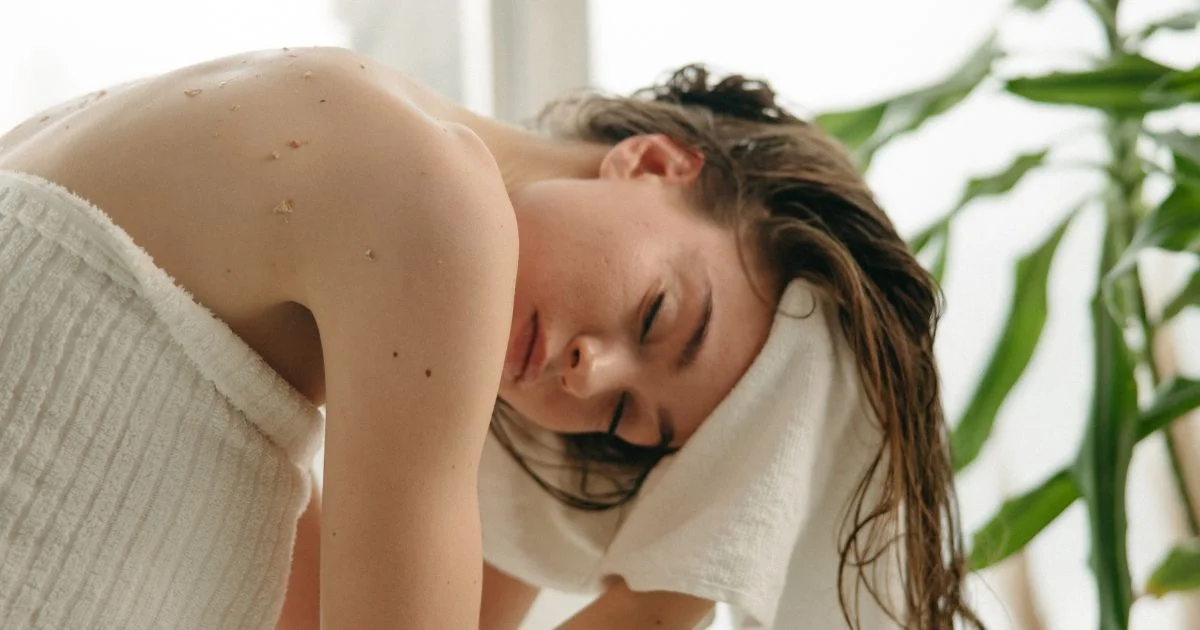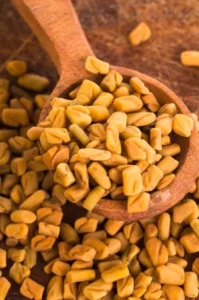Postpartum dry scalp is a common concern among new mothers, arising from hormonal changes and the stresses of caring for a newborn. This condition can cause discomfort, itchiness, and flakiness, impacting overall scalp and hair health. Understanding effective treatments for postpartum dry scalp is essential to restore the scalp’s natural moisture balance and promote healthy hair growth. In this article, we will explore various remedies, lifestyle changes, and professional advice to help new mothers alleviate dry scalp issues and embrace their postpartum journey with confidence and comfort.
 Understanding Postpartum Dry Scalp
Understanding Postpartum Dry Scalp
Postpartum dry scalp is a common condition experienced by many new mothers. During pregnancy, hormonal fluctuations can affect the scalp’s natural oil production, leading to dryness, itchiness, and flakiness. Additionally, the stress and lack of sleep that often accompany caring for a newborn can further exacerbate the issue.
You may also like..Thinning Hair in Women: Causes, Treatments, and Solution Hair Treatment for Oily Scalp and Dry Ends: Achieve Healthy Hair How to Start a Healthy Hair Journey?
The Causes Behind Postpartum Dry Scalp
Several factors contribute to postpartum dry scalp.
1.Hormonal Changes:
During pregnancy, estrogen levels rise, leading to increased sebum production and a well-moisturized scalp. After childbirth, these hormone levels drop, resulting in reduced sebum production and dryness.
2.Stress and Sleep Deprivation:
Caring for a newborn can be stressful and lead to sleep deprivation, which can negatively impact scalp health and contribute to dryness.
3.Unsuitable Hair Products:
Hair care products used during pregnancy may not be suitable for the postpartum period, causing scalp dryness and irritation.
4.Environmental Factors:
Harsh weather conditions and excessive sun exposure can dehydrate the scalp and exacerbate dryness.
5.Scalp Imbalance:
Disruption in the scalp’s natural pH balance due to various factors can lead to dry and flaky scalp conditions.
6.Dehydration:
Inadequate water intake can result in overall dehydration, including the scalp, leading to dryness and discomfort.
7.Postpartum Hair Shedding:
The natural shedding of hair after childbirth may cause irritation and contribute to scalp dryness.
8.Overwashing and Hot Water:
Excessive washing of hair and using hot water can strip the scalp of its natural oils, leading to dryness and sensitivity.
Identifying the Symptoms
Recognizing the symptoms of postpartum dry scalp is crucial for timely treatment. Common symptoms include persistent itchiness, flaky scalp, and a feeling of tightness in the scalp region. You may also notice increased hair shedding or thinning in severe cases.
You may also like.How to Cover Grey Hair After Keratin Treatment
The Importance of Seeking Professional Advice
While postpartum dry scalp can often be managed with home remedies, it is essential to consult a dermatologist or a trichologist if the condition persists or worsens. They can accurately diagnose the underlying cause of the postpartum dry scalp and recommend appropriate treatments.
Natural Remedies for Postpartum Dry Scalp
1.Coconut Oil and Aloe Vera Hair Mask
Coconut oil is renowned for its nourishing properties, and combining it with aloe vera can provide soothing relief to the dry scalp. To create the hair mask, mix equal parts of coconut oil and fresh aloe vera gel. Gently massage the mixture onto your scalp and hair, leave it on for an hour, and then rinse thoroughly.
2.Rosemary and Jojoba Oil Scalp Massage
Rosemary oil stimulates blood circulation in the scalp, promoting hair growth, while jojoba oil helps retain moisture. Mix a few drops of rosemary essential oil with jojoba oil and warm it slightly. Massage the oil blend into your scalp using circular motions for 5-10 minutes before shampooing.
3.Apple Cider Vinegar Rinse
Apple cider vinegar helps balance the scalp’s pH levels and remove product buildup. Dilute apple cider vinegar with water and use it as a final rinse after shampooing. This rinse will leave your hair soft and your scalp revitalized.
5.Honey and Yogurt Hair Treatment
A combination of honey and yogurt creates a deeply moisturizing hair mask. Honey’s humectant properties lock in moisture, while yogurt’s probiotics nourish the scalp. Mix equal parts of honey and plain yogurt, apply it to your scalp and hair, and leave it on for 30 minutes before rinsing.
6.Essential Oils for Dry Scalp Relief
Certain essential oils, such as lavender, tea tree, and chamomile, possess anti-inflammatory and antifungal properties that can alleviate scalp dryness. Mix a few drops of your chosen essential oil with a carrier oil like jojoba or almond oil and apply it to your scalp as needed.
7.Scalp Exfoliation with Brown Sugar Scrub
Gently exfoliate your scalp with a DIY brown sugar scrub once a week to remove dead skin cells and promote better absorption of hair products. Mix brown sugar with a little olive oil and massage it onto your scalp in circular motions. Rinse thoroughly and follow with shampoo and conditioner.
8.Avocado and Banana Hair Mask:
Avocado and banana are rich in vitamins and nutrients that nourish the scalp and hair. Mash one ripe avocado and one ripe banana together to form a smooth paste. Apply the mixture to your scalp and hair, massaging gently. Leave it on for 30 minutes before rinsing thoroughly with lukewarm water. This hair mask will provide deep hydration and alleviate dryness.
9.Yogurt and Fenugreek Seed Paste:
Yogurt contains probiotics that help soothe the scalp, while fenugreek seeds are known for their moisturizing properties. Soak a handful of fenugreek seeds in water overnight, and in the morning, grind them into a fine paste. Mix the fenugreek paste with plain yogurt and apply it to your scalp. Leave it on for 1 hour before rinsing off. This remedy will help soothe dry scalp and reduce inflammation.
10.Tea Tree and Lavender Oil Scalp Massage:
Tea tree and lavender oils have antibacterial and antifungal properties that can help combat dryness and flakiness on the scalp. Mix a few drops of tea tree oil and lavender oil with a carrier oil, such as coconut or jojoba oil. Warm the oil blend slightly and massage it into your scalp using gentle circular motions. Leave it on for 20-30 minutes before shampooing. This scalp massage will promote scalp health and alleviate dryness.
Choosing the Right Hair Care Products
Using hair care products specifically designed for dry and sensitive scalps is crucial for managing postpartum dryness effectively.
1.Gentle Shampoos and Conditioners
Opt for sulfate-free, gentle shampoos and conditioners that won’t strip away natural oils from your scalp. Look for products that contain moisturizing ingredients such as glycerin or hyaluronic acid.
2.Sulfate-Free Products
Sulfates are harsh detergents commonly found in shampoos, and they can contribute to scalp dryness. Switching to sulfate-free options will help maintain your scalp’s natural moisture.
3.Silicone-Free Formulas
Silicone can create a barrier on the scalp, preventing moisture from penetrating. Choose silicone-free hair care products to promote a healthy scalp environment.
Healthy Diet and Hydration for Scalp Health
A balanced diet plays a significant role in maintaining scalp health and overall hair growth.
1.Nutrient-Rich Foods for Hair and Scalp
Incorporate foods rich in vitamins, minerals, and fatty acids, such as leafy greens, nuts, seeds, and fish, into your diet. These nutrients support scalp health and promote hair strength.
2.Importance of Staying Hydrated
Drink an adequate amount of water daily to keep your scalp and body hydrated. Dehydration can lead to dry, flaky skin, including the scalp.
Lifestyle Changes to Support Scalp Health
Making some lifestyle adjustments can contribute to scalp health and overall well-being during the postpartum period.
1.Stress Management Techniques
Stress can negatively impact your hormonal balance, leading to postpartum dry scalp issues. Practice relaxation techniques like meditation, yoga, or deep breathing to reduce stress levels.
2.Regular Exercise and Its Impact
Engaging in regular physical activity improves blood circulation, which, in turn, benefits your scalp and hair health.
3.Prioritizing Rest and Sleep
Getting sufficient rest and sleep is crucial for your body to recover and maintain its overall health, including postpartum dry scalp health.
Avoiding Common Scalp Care Mistakes
Certain habits may inadvertently worsen postpartum dry scalp.
1.Overwashing and Hot Water
Avoid washing your hair excessively, as it can strip away natural oils. Also, opt for lukewarm or cool water instead of hot water, which can further dry out your scalp.
2.Excessive Use of Styling Products
Using too many styling products can lead to product buildup on your scalp, contributing to dryness and irritation.
Postpartum Hair Shedding vs. Hair Loss
It is essential to differentiate between postpartum hair shedding, which is a natural phase after childbirth, and hair loss due to underlying issues. If you suspect excessive hair loss, consult a healthcare professional to rule out any medical conditions.
Conclusion
The postpartum period brings joy and new experiences, but it also comes with its set of challenges. Dealing with postpartum dry scalp is one such challenge, but with the right care and attention, you can nurture your scalp back to health. Incorporate natural remedies, choose appropriate hair care products, adopt a healthy lifestyle, and prioritize self-care. Remember to seek professional advice if needed. Embrace the journey of motherhood with confidence and a healthy, moisturized scalp.
Disclaimer:The information provided in this article is for general informational purposes only and should not be considered as professional medical or dermatological advice. Always consult with a qualified healthcare professional or specialist for personalized guidance and treatment regarding postpartum dry scalp or any other health-related concerns.
FAQs
How long does postpartum dry scalp last?
Postpartum dry scalp can last for several weeks to a few months, depending on individual factors. Consistent care and proper treatment can expedite the healing process.
Can postpartum hair loss contribute to scalp dryness?
Yes, postpartum hair loss can contribute to scalp dryness, as the shedding hair may cause irritation and disturb the scalp's natural balance.
Are there any side effects of using essential oils on the scalp?
Essential oils are generally safe when used in moderation and properly diluted. However, some individuals may experience allergic reactions or skin irritation. Always do a patch test before using any new essential oil.
Can I use my regular shampoo for postpartum dry scalp?
If your regular shampoo contains harsh detergents like sulfates or silicones, it may worsen the dryness. Switch to a gentle, sulfate-free, and silicone-free shampoo for better scalp care.
When should I seek professional help for my dry scalp?
If home remedies and lifestyle changes do not improve your scalp condition or if you experience severe itching, redness, or hair loss, it is advisable to consult a dermatologist or trichologist for a comprehensive evaluation and personalized treatment plan.




